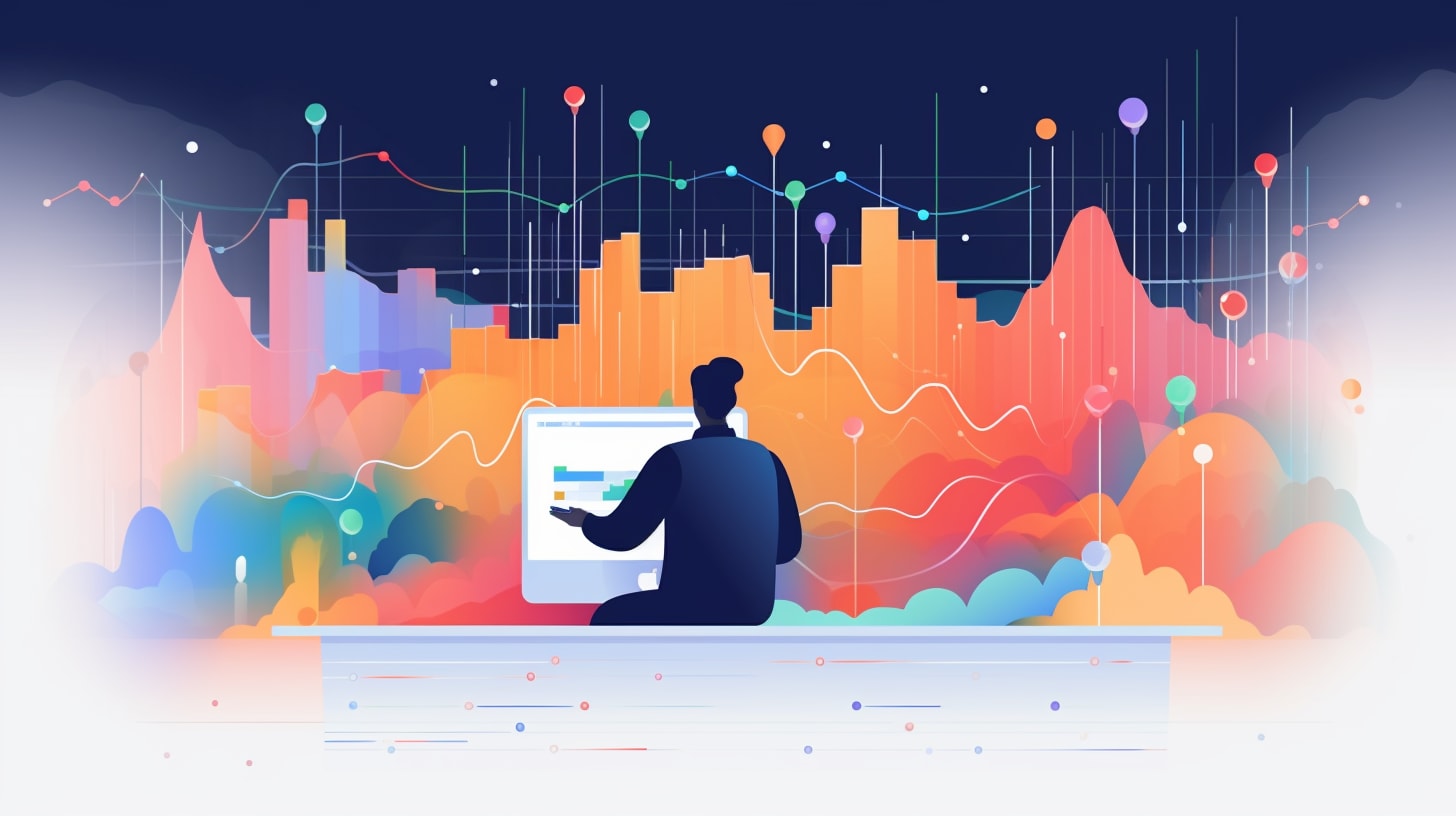Imagine the world of artificial intelligence (AI) seamlessly integrated into Google's search engine, revolutionizing the way you explore information. The future of search is here! Welcome to the Search Generative Experience (SGE), an exciting experimental version of Google's search engine powered by amazing AI. Get ready to join us to dive into the thrilling world of Google AI, its capabilities, and applications as we embark on this fascinating journey together!
In this captivating blog post, we will introduce you to Google's new AI search experiment, Search Labs, and explore information about its groundbreaking features. You'll get a glimpse of the Search Generative Experience, learn how to get started with Google AI services, and discover real-world success stories. Let's embark on this exciting adventure and explore the endless possibilities of Google AI!
Short Summary
- Explore Google AI and its revolutionary products & experiments!
- Experience groundbreaking search with Search Labs' AI capabilities!
- Unlock the power of Google Cloud Platform, TensorFlow, Dialogflow & more to revolutionize industries worldwide.
Introduction
Google's latest experiments in AI is nothing short of astonishing, encompassing a vast array of products and experiments related to artificial intelligence. From AI-powered search experiences to natural language processing, computer vision, and machine learning, Google AI is reshaping the way we interact with information.
The Search Generative Experience (SGE) is just one of the many groundbreaking innovations brought to life by Google AI.
Google's new AI search experiment
Ready to dive into the realm of Google's latest experiments? Introducing Search Labs, a program where you can test early-stage experiments and share your valuable feedback to help shape the future of technology.
By joining Search Labs, you'll gain access to limited-availability experiments such as AI-powered search experiences, Google Workspace integration, and much more. So, are you eager to sign up to explore the exciting world of search labs experiments? Keep reading to find out more!
Brief overview of the Search Generative Experience
The Search Generative Experience (SGE) is a cutting-edge experimental version of Google's search engine that brilliantly utilizes artificial intelligence to generate responses directly into search results. SGE aims to revolutionize Google Search by enhancing it with AI-driven capabilities.
One of its remarkable features is the AI-generated summary, which intelligently generates summaries of webpages right within search results to help users quickly find the information they need. The potential impact of SGE on search results and the SEO industry could be game-changing.
Discover Google AI: Capabilities and Applications
Google AI is an extraordinary powerhouse with a diverse range of capabilities, including natural language processing, image and video analysis, speech recognition, and generative AI. These capabilities can be integrated into various Google products such as Google Workspace and Gmail, making it easier for users to harness the true potential of AI in their daily tasks.
From understanding and generating human language to analyzing images and videos, Google AI is continuously pushing the boundaries and transforming the way we interact with technology.
Search Labs
Search Labs is your gateway to the future of AI-powered search experiences, offering a plethora of fascinating features, including natural language processing, computer vision, and machine learning.
By joining the waitlist and gaining access to Labs, you can explore the potential of AI-powered experiments and contribute your invaluable feedback to help improve and innovate these early-stage experiments.
So, are you ready to join the thrilling world of search labs experiments and shape the future of technology?
Introduction to Search Labs
Search Labs is a phenomenal program that allows you to experiment with early-stage Google Search experiences and share your precious feedback to make them even better. The Google app on Android phones and iPhones, along with Chrome on desktop, offer a variety of lab experiments, including AI-powered experiences. Take advantage of this feature to explore all these exciting possibilities!
By participating in Search Labs, you will have a unique opportunity to test your ideas and influence the future of Google Search.
The waitlist and access to Labs
Search Labs is currently only accessible to a select group of people within the US. Additionally, it can only be accessed in English. To check if experiments are ready for you, simply tap the Labs icon and turn on Google notifications through the Google app.
Don't miss out on the opportunity to be at the forefront of Google's AI search experiment! With Labs, you can explore the latest AI-powered search features and help shape the future of search.
Natural Language Processing
Natural language processing (NLP) is a thrilling branch of artificial intelligence that focuses on the interactions between computers and human languages. Google AI's NLP capabilities enable it to brilliantly analyze text, extract meaning, and generate incredible natural language responses.
By leveraging the power of NLP, Google aims to enhance your search experience, making it more efficient and enjoyable.
Computer Vision
Computer Vision is an exciting field of artificial intelligence that empowers computers to understand and analyze images and videos. Google AI's computer vision capabilities allow it to astoundingly detect objects, recognize faces, and classify images and videos.
By harnessing the power of computer vision, Google is continually refining the way we search and interact with visual content.
Machine Learning
Machine Learning is an awe-inspiring branch of artificial intelligence that focuses on enabling machines to learn from experience and improve their performance on a specific task without being explicitly programmed.
Google AI uses data and algorithms to discover patterns in data and make predictions or decisions based on those patterns. With machine learning, Google search is revolutionizing the way we search, providing more accurate and relevant results.
Getting Started with Google AI Services
As you've discovered, Google AI offers a plethora of exciting capabilities and applications. To help you get started with Google AI services, we'll introduce you to the Google Cloud AI Platform, TensorFlow, and Dialogflow.
These powerful tools will enable you to harness the true potential of Google AI and transform the way you and data scientists interact with information.
Google Cloud AI Platform
The Google Cloud AI Platform is a fantastic suite of tools and services that enable developers to quickly build, train, and deploy machine learning models on Google Cloud. It features a REST API for managing jobs, models, and versions, and supports Kubeflow for constructing portable ML pipelines.
The AI Platform also provides an amazing range of services such as AutoML, Cloud ML Engine, and Cloud TPUs to help developers create and manage their models with ease.
TensorFlow
TensorFlow is an open-source machine learning platform developed by Google that can be used for deep learning and traditional machine learning applications. This Python-friendly library for numerical computation allows you to train and infer machine learning models to perform tasks such as image recognition, natural language processing, and time-series analysis.
With TensorFlow, you can unlock the true potential of Google AI and build powerful applications that can transform the way you work and live.
Dialogflow
Dialogflow is a natural language understanding platform owned by Google that allows you to build conversational applications like chatbots and voice bots. This remarkable platform makes it super easy to design and integrate conversational user interfaces into applications, providing an interactive and engaging user experience.
With Dialogflow, you can leverage the power of Google AI to create intelligent and responsive conversational applications that delight users.
Search Generative Experience (SGE)
Now that you have a deeper understanding of Google AI services, let's dive back into the Search' new Generative and Experience (SGE). As we've discussed earlier, SGE is an experimental version of Google's search engine that uses machine learning to generate summaries of webpages directly into search results.
In the following subsections and links, we'll explore the AI-generated summary feature and its potential impact on search results and the SEO industry.
Description of SGE
The Search Generative Experience (SGE) is an innovative experiment in Google's Search Labs designed to make searching simpler and more efficient for users. Through its extraordinary AI-driven capabilities, SGE aims to change the way people search for information by providing more relevant and personalized results.
By harnessing the power of AI, SGE is set to redefine the landscape of search and the SEO industry.
The AI-generated summary feature
The AI-generated summary feature is a fantastic tool that uses cutting-edge artificial intelligence to create a shorter version of a longer piece of text, such as an article, blog post, or book. It efficiently extracts and highlights the main points and key information, accurately generating summaries without losing the essence of the original content.
This incredible feature not only saves time but also helps improve search engine optimization by providing more concise summaries of content.
Potential impact on search results and SEO industry
The potential impact of SGE on search results and the SEO industry could be significant. By providing more relevant and personalized results, SGE could dramatically improve user experience and revolutionize the way search engines rank and display results.
This, in turn, could lead to the development of new optimization strategies for SEO professionals, who will need to adapt to the ever-evolving landscape of search and AI-powered content.
Real-World Success Stories
As we've explored the remarkable world of Google AI and its applications, it's time to take a look at some real-world success stories where Google AI has made a significant impact. From healthcare to retail and manufacturing, Google AI is transforming industries across the globe.
Let's delve into some inspiring examples of how Google AI is driving innovation and improving lives.
Healthcare
In the healthcare sector, Google AI has made tremendous strides in improving patient care, reducing medical errors, and enhancing patient safety. Healthcare providers are using AI to provide more accurate diagnoses and automate administrative tasks such as scheduling and billing, ultimately reducing costs and improving efficiency.
These success stories demonstrate the incredible potential of Google AI in revolutionizing healthcare and delivering better outcomes for patients.
Retail
In the retail industry, companies like Apple, Zara, and Warby Parker are leveraging Google AI to stay ahead of the competition and deliver exceptional customer experiences. Successful retailers are constantly adapting to new ways of increasing sales, rethinking good habits, and using AI technologies to enhance their operations and customer relationships.
These success stories highlight the power of Google AI in transforming retail and driving innovation.
Manufacturing
Google AI has also made a significant impact in the manufacturing sector. Companies like Airbus and Mueller Inc. have leveraged AI to enhance production efficiency, cut costs, and streamline business operations. These success stories showcase the incredible potential of Google AI in revolutionizing the manufacturing industry and driving transformative change across the globe.
Additional Features in Labs
Besides the Search Generative Experience, Labs offers additional features that can further enhance your experience with Google AI. In this section, we will introduce you to the "Add to Sheets" and "Code Tips" features, and share best practices for implementing Google AI.
Let's explore these amazing features and how they can help you harness the true potential of Google AI.
Introduction to "Add to Sheets" and "Code Tips"
The "Add to Sheets" feature allows users to quickly and easily add AI models to their Google Sheets workflow through various add-ons available in the Google Workspace Marketplace. On the other hand, "Code Tips" is an exciting feature that provides helpful code tips for your projects.
These features not only streamline your workflow, but also enable you to make the most out of Google AI and its capabilities.
The significance of these features being in Labs
The presence of these features in Labs is highly significant, as it allows Google to test and refine them in a safe and controlled environment. Innovation labs, like Search Labs, provide a secure environment for experimenting and exploring unconventional ideas, ultimately leading to the creation of new products and solutions.
By being a part of Labs, "Add to Sheets" and "Code Tips" can be continuously improved and modified based on user feedback, ensuring their success in the mainstream market.
Best Practices for Implementing Google AI
To effectively implement Google AI, it's crucial to follow some best practices. These include understanding the specific AI product or tool being used, ensuring that the data being used is high-quality and relevant, having a clear goal in mind for the AI implementation, using a human-centered design approach, identifying multiple metrics to assess training and monitoring, and understanding Google's testing process.
It's important to remember that AI implementation is not a one-time event. It requires ongoing monitoring and evaluation to ensure that the AI is performing as expected.
Data Preparation
Data preparation is an essential step in implementing Google AI, as it involves cleaning, transforming, and organizing raw data for further processing and analysis. Best practices for data preparation include ensuring data accuracy, consistency, and completeness, using automated tools to streamline the process, and using data visualization to gain insights.
By following these practices, you can ensure that your AI implementation is built on a solid foundation of high-quality data.
Model Selection and Training
Model selection and training are crucial steps in implementing Google AI. Best practices include using cross-validation to thoroughly evaluate model performance, using regularization to prevent overfitting, and using hyperparameter optimization to accurately find the best model parameters. By following these practices, you can ensure that your AI implementation is built on a strong foundation of well-trained and optimized models.
Monitoring and Maintenance
Monitoring and maintenance are essential processes that involve keeping track of the performance and health of a system or product, and taking actions to ensure that it continues to function properly over time. Best practices for monitoring and maintenance include conducting regular checks, identifying potential issues, and taking corrective actions to resolve them.
By adhering to these practices, you can ensure that your AI implementation remains reliable and efficient over time.
Google's Testing and User Access
Google's testing process plays a significant role in the success of its AI implementations. The company employs a four-stage testing process, which includes testing by dedicated, internal testers, further testing on a crowdtesting platform, and "dogfooding" – having Google employees use the product in their daily work.
By understanding and following Google's testing process, you can ensure the success of your AI implementation.
Overview of Google's testing process
Google's four-stage testing process involves testing by dedicated, internal testers, further testing on a crowdtesting platform, and "dogfooding," which involves having Google employees use the product in their daily work. This comprehensive process ensures that the AI system is accurate, reliable, and efficient before being released to the public.
By adhering to Google's testing process, you can ensure that your AI implementation is built on a strong foundation of accuracy and reliability.
Summary
Throughout this enthralling journey, we've explored the fascinating world of Google AI, its capabilities, and applications. From the groundbreaking Search Generative Experience to the powerful Google AI services like Google Cloud AI Platform, TensorFlow, and Dialogflow, we've delved into the endless possibilities of AI in transforming our lives and industries. By following best practices in implementing Google AI, you can harness its full potential and revolutionize the way you search, work, and live.
As we conclude this exciting adventure, it's essential to remember that the world of Google AI is ever-evolving, continually pushing the boundaries of what's possible. By staying informed, embracing innovation, and adopting best practices, you can stay ahead of the curve and unlock the true potential of Google AI. The future of search is here – are you ready to seize the opportunities it brings?
Frequently Asked Questions
What is Google's AI called?
Google's AI technology is called Bard and it has become a powerful tool for natural language processing and machine learning. The ChatGPT tool from Microsoft was the inspiration behind Google's AI, which seeks to simulate human conversations with its sophisticated AI capabilities.
With the introduction of Bard, Google is set to revolutionize the world of AI and change the way we communicate.
How do I access Google AI?
If you're ready to access Google AI, head over to the mobile app or web browser with your Chrome browser and explore the exciting opportunities offered by Google Search Labs, Google Workspace with Duet AI, Project Tailwind and MusicLM!
Get started today and unlock the power of AI-driven search results.
Is AI with Google free?
Yes - Google AI is free and accessible to everyone! It's an amazing opportunity to explore the possibilities of AI and to learn more about its potential.
Let's get started on the journey of artificial intelligence!
What is Google's AI chatbot called?
Wow, Google Bard is here and it's changing the game for AI chatbots! This Google-developed AI chatbot is quickly becoming a rival to popular ChatGPTChatGPTChatGPT.
With its OpenAI GPT-3.5 and GPT-4 underpinnings combined with supervised and reinforcement learning algorithms, Google Bard is sure to keep you entertained!








